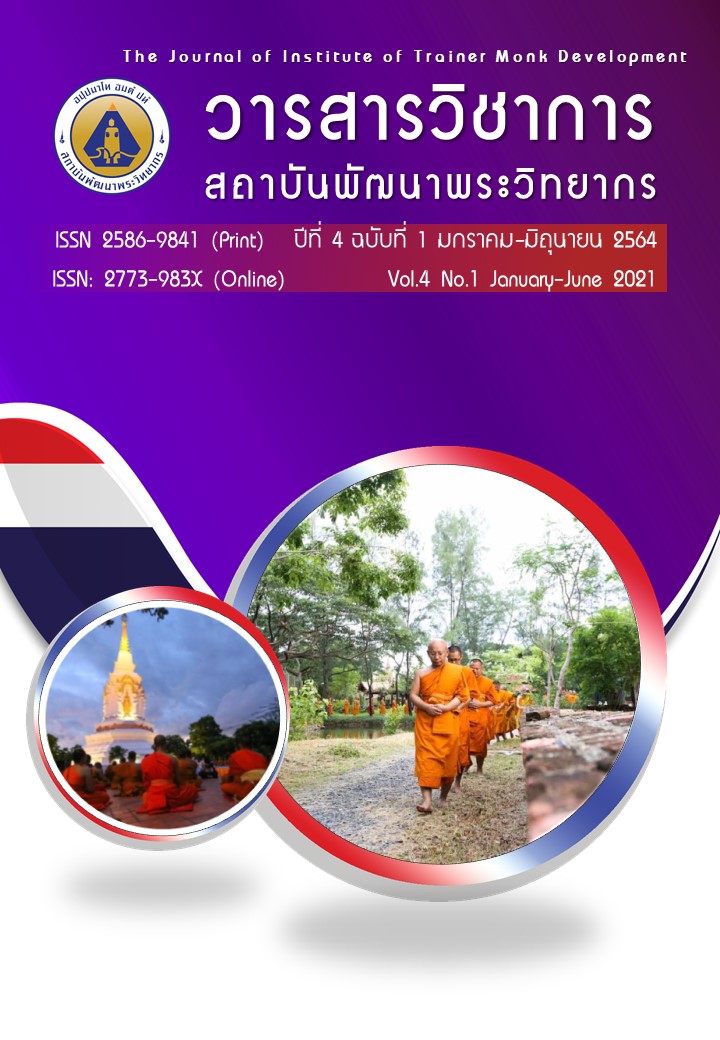Training Process for Leadership Development: Local Leadership Training in Curriculum Nakhon Sri Thammarat Province
Main Article Content
Abstract
The study entitled “A Training Process for the Development of Leadership : A Program for Training Local and Regional Leaders of Nakhon Sri Dhammarat” aims 1) to study the satisfaction of the participants in the Program for Training Local and Regional Leaders of Nakhon Sri Dhammarat according to their opinion; 2) to compare the opinion of the participants in the Program for Training Local and Regional Leaders of Nakhon Sri Dhammarat; and The study is a mixed method research conducting a qualitative research using an in-depth interview collecting data from key informants to support a quantitative research collecting data by a questionnaire and a participatory observation in the training process.
The result found that the satisfaction upon a Program of Local and Regional Leaders in Nakhon Sri Thammarat in general was high and results of the Program based on Six virtues for fraternal living revealed as below. 1. In the respect of keeping without blemish the rules of conduct along with one’s fellows, participants knew and understood the participatory work process. 2. In the respect of being amiable in thought, participants had an opportunity in the Dhamma practice, keeping precepts, meditation conduct and community assistance through the activities of Buddhist prayers chanting, Dhamma listening, walking mediation practice and meditation retreat as the best example for their village followers. 3. In the respect of being endowed with right views along with one’s fellows, participants, after training in the activity of Virtues for Fraternal Living and Thai Society, had a wisdom in the effectively local administration. 4. In the respect of being amiable in words, participants understood themselves and other more, had a new knowledge, listening and communicating skills. 5. In the respect of being amiable in deed, the Program constructed the way of work for a leader of honesty. 6.In the respect of sharing any lawful gains with virtuous fellows, participants acquired virtues and morality, and followed the sufficiency economy.
Article Details
บทความที่ได้รับการตีพิมพ์เป็นลิขสิทธิ์ของวารสารวิชาการสถาบันพัฒนาพระวิทยากร
ข้อความที่ปรากฎอยู่ในบทความที่ได้รับการตีพิมพ์ในวารสาร ถือเป็นความรับผิดชอบของผู้เขียนบทความ และข้อคิดเห็นนั้นไม่ถือว่าเป็นทัศนะและความรับผิดชอบของกองบรรณาธิการวารสารวิชาการสถาบันพัฒนาพระวิทยากร
References
ทนง ทองเต็ม. (2550). เอกสารประกอบการบรรยาย เรื่อง การประเมินผลการเรียนการฝึกอบรม.เอกสารอัดสำเนา.
พระพรหมคุณาภรณ์ (ป.อ.ปยุตฺโต).(2559). พุทธธรรม ฉบับขยายความ. พิมพ์ครั้งที่ 46. กรุงเทพมหานคร : บริษัท สหธรรมิก จำกัด.
พระมหาอนุชิต อนุจารี (ถนัดเลื่อย). (2556). การพัฒนาสังคมตามหลักสาราณียธรรม ขององค์การบริหารส่วนตำบลแข้ อำเภออุทุมพรพิสัย จังหวัดศรีสะเกษ. วิทยานิพนธ์พุทธศาสตร์มหาบัณฑิต. บัณฑิตวิทยาลัย : มหาวิทยาลัยมหาจุฬาลงกรณราชวิทยาลัย.
วันชัย วัฒนศัพท์. (2543). คู่มือการมีส่วนร่วมของประชาชนในการตัดสินใจของชุมชน, กรุงเทพมหานคร: ศูนย์สันติวิธี เพื่อพัฒนาประชาธิปไตย สถาบันพระปกเกล้า.
สำนักงานคณะกรรมการพัฒนาการเศรษฐกิจและสังคมแห่งชาติ สำนักนายกรัฐมนตรี. (2560). แผนพัฒนาเศรษฐกิจและสังคมแห่งชาติฉบับที่สิบสอง พ.ศ.2560-2564. กรุงเทพมหานคร: สำนักงานคณะกรรมการพัฒนาการเศรษฐกิจและสังคมแห่งชาติ.
ธรรมนูญ มูณีเกิด และคณะ. (2563). "การใช้หลักสาราณียธรรมในการปฏิบัติงานของบุคลากรในองค์การบริหารส่วนตำบลเสาธง อำเภอร่อนพิบูลย์ จังหวัดนครศรีธรรมราช, วารสารสังคมศาสตร์และมานุษยวิทยาเชิงพุทธ ปีที่ 5 ฉบับที่ 2 กุมภาพันธ์: 18-34.


